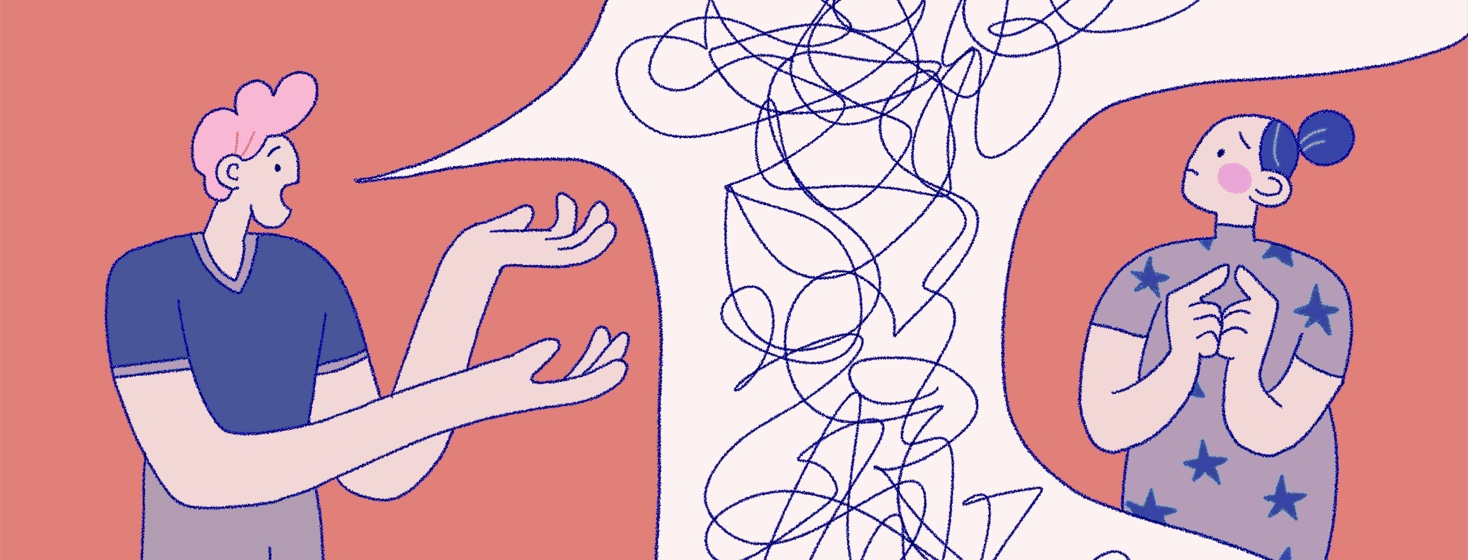In Peer Support Program, Trying to Share the Right Amount
When I was first treated for acute myeloid leukemia (AML), it helped me to speak to someone who had “been there, done that.” Specifically, in Dana-Farber Cancer Institute’s One-to-One Volunteer Program, through which volunteers are matched with patients to answer their questions. It wasn’t so much what the woman said as the fact that she was alive and well many years after her stem cell transplant. It was all on the phone, though I did get a chance to meet her at a dinner for patients and volunteers.
My social worker had told me about the program and asked if I wanted to speak to someone. If you are newly diagnosed and want this kind of reassurance and nobody has approached you, you can ask someone on your care team. The Leukemia and Lymphoma Society has a similar program, called First Connection. If you want to do it, you just go on their website and fill out a form.
"It feels good to be useful"
Now I am a One-to-One volunteer at Dana-Farber. It feels good to be useful. First I wrote helpful, then changed it to useful. That’s because you can never be sure if you helped. I’m pretty sure, though, that it is helpful to hear from someone who has survived what you are about to go through. The difference between useful and helpful is, as they say, splitting hairs.
To qualify as a volunteer, we had to be a certain number of years out of treatment. I think it was two. I can’t remember for certain, because my first transplant was a while ago... in 2003.
Before getting our first match, we had training. It included role-play, with one person playing a patient asking all kinds of questions. The main point was to be a good listener. I don’t remember all of it, but the idea was not to go off on a tangent with all kinds of (unrelated) personal information.
How much do I share?
It was straightforward for me when I started. I had had an autologous transplant with no complications. I gave some tips on reading material and in those days, videos. (Seinfeld, Seinfeld, Seinfeld). For those who would be hospitalized, I shared a tip I learned from my sister: bring a lamp. The soft glow is much homier than the glaring overhead light.
Now that I have had four transplants, though, it has become trickier. Patients always ask when my transplant was. Do I tell them the whole story? Will the two relapses and the graft failure scare them? Or will it encourage them because I went through all that and am still here, running and playing tennis?
If they ask about side effects, do I tell them that I have neuropathy that never goes away? Or do I tell them that I have neuropathy that is managed somewhat? I don’t just start blathering away about it, but if they ask, I say that I have neuropathy and tell them that it is managed with gabapentin and CBD salve that I put on my feet.
Honest, without overwhelming
I have found a way to be honest without being overwhelming. I tell them that I relapsed after the first transplant, the autologous, and have not relapsed after the last one, the allogenic of 12 years ago. Since I have a textbook in my mind, I tell them that the “auto” (the first) was not curative while the “allo” (the most recent) is. Most are allogenic now, so I think that is helpful.
I don’t lie about the other two transplants, the “allo” followed by graft failure and the next allo by relapse. I just don’t mention it. Maybe your eyes are already glazing over, so just think about how overwhelming it would be for the poor patient. I remember with one patient, the conversation led to it. I told her it was a long story and flukey and unlikely to happen to her and then asked if she wanted to hear it. She said she did.
Afterward, she said she was glad she heard it because it showed her that even if crazy things happen, you can still survive.

Join the conversation